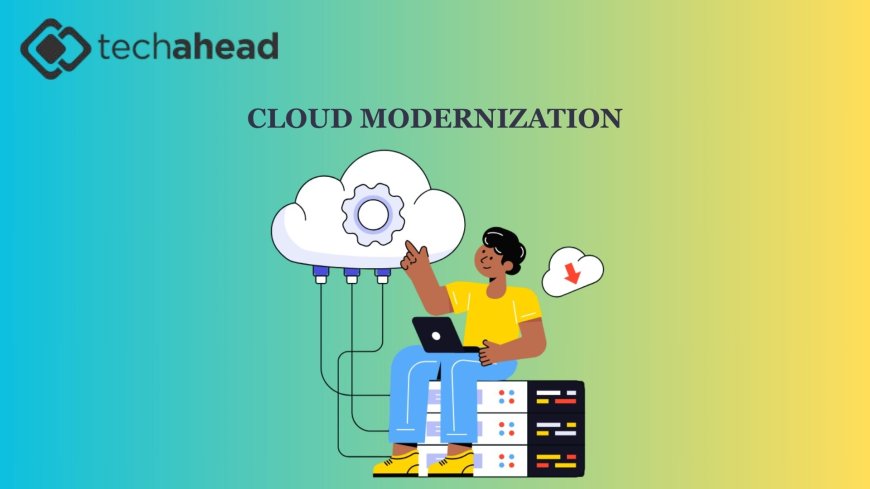Beyond Migration: How Cloud Modernization Unlocks True Business Value

For years, cloud migration was the headline act in digital transformation. But in 2025, simply moving workloads to the cloud is no longer enough. The organizations that are truly thriving are those that have embraced cloud modernization a holistic approach that transforms not just where applications run, but how businesses operate, innovate, and grow. At the heart of this evolution are Managed Cloud Services, which provide the expertise, automation, and governance needed to turn cloud investments into real, measurable business value. Lets explore how cloud modernization is redefining whats possible for enterprises in the digital age.
The Shift from Migration to Modernization
Many organizations have already completed their initial cloud migrations, but few have fully modernized. The difference is profound. Migration is about moving; modernization is about transforming. Cloud modernization means rearchitecting applications, automating operations, and leveraging cloud-native services to drive business outcomes that were previously out of reach.
Managed Cloud Services are the enablers of this shift. They bring together deep technical expertise, proven frameworks, and advanced automation to help organizations move beyond basic adoption. The result is a cloud environment that is not only more efficient and secure, but also a true engine for innovation and growth.
Key Pillars of Cloud Modernization
1. Application Refactoring and Microservices
Legacy, monolithic applications are slow to change and difficult to scale. Cloud modernization involves breaking these applications into microservicessmaller, independent components that can be developed, deployed, and scaled individually. This approach accelerates development cycles, improves resilience, and enables organizations to respond quickly to changing business needs.
Managed Cloud Services play a critical role here, guiding organizations through the process of refactoring, containerizing, and orchestrating microservices using platforms like Kubernetes. They ensure best practices are followed, security is embedded, and performance is continuously optimized.
2. DevOps and Automation
Modernization is impossible without automation. DevOps practicessuch as continuous integration and continuous delivery (CI/CD), infrastructure as code, and automated testingare essential for rapid, reliable software releases. Managed Cloud Services provide the tools, expertise, and operational support to automate every stage of the software lifecycle, from development to deployment to monitoring.
This automation not only accelerates innovation but also reduces human error, improves consistency, and frees up valuable IT resources to focus on higher-value initiatives.
3. Data Modernization and Analytics
In the digital economy, data is a strategic asset. Cloud modernization enables organizations to unlock the full value of their data by moving from siloed, legacy databases to cloud-native data platforms. This shift supports real-time analytics, AI-driven insights, and seamless data integration across the enterprise.
Managed Cloud Services ensure that data is secure, compliant, and always available for decision-making. They help organizations design and implement modern data architectures, migrate legacy data, and leverage advanced analytics tools to drive smarter business outcomes.
Industry Example: Financial Services
Consider a leading bank that set out to launch a digital-only banking platform. Rather than simply migrating existing systems, the bank embraced cloud modernization by adopting microservices, automating compliance checks, and integrating real-time analytics. With the support of Managed Cloud Services, the bank reduced customer onboarding time from days to minutes, improved fraud detection, and scaled seamlessly during periods of high demand. The result was not just a more efficient IT environment, but a fundamentally transformed business model.
Overcoming Modernization Challenges
Modernization is complex and often fraught with challengeslegacy dependencies, skill gaps, and security concerns can all slow progress. This is where Managed Cloud Services prove invaluable. They provide expert guidance, automated migration tools, and robust security frameworks to ensure a smooth transition and ongoing optimization.
A successful modernization journey starts with a clear assessment of current systems, a phased roadmap, and a commitment to continuous improvement. Managed Cloud Services partners work closely with organizations to identify quick wins, manage risk, and build momentum for long-term transformation.
The Business Value of Cloud Modernization
The benefits of cloud modernization go far beyond IT. Organizations that modernize see:
- Faster time-to-market for new products and features
- Improved customer experiences through more reliable and scalable applications
- Reduced operational costs by eliminating technical debt and optimizing resource usage
- Enhanced security and compliance with automated controls and real-time monitoring
- Greater agility to respond to market changes and seize new opportunities
Managed Cloud Services ensure these benefits are realized and sustained, providing ongoing optimization, support, and innovation.
Building a Modernization Roadmap
A successful cloud modernization initiative requires a strategic, phased approach:
- Assessment and Planning: Evaluate current IT assets, identify modernization opportunities, and define business goals.
- Application Modernization: Refactor or re-platform legacy applications to leverage cloud-native services.
- Automation and DevOps: Implement CI/CD pipelines, infrastructure as code, and automated testing to accelerate delivery.
- Data Modernization: Migrate and modernize data platforms to enable real-time analytics and AI.
- Security and Compliance: Embed security controls and automate compliance monitoring from day one.
- Continuous Optimization: Use analytics and Managed Cloud Services to monitor performance, control costs, and drive ongoing improvements.
Choosing the Right Managed Cloud Services Partner
The right partner can make or break a modernization initiative. Look for Managed Cloud Services providers with:
- Deep expertise in your industry and technology stack
- A proven track record of successful modernization projects
- Robust security and compliance capabilities
- Transparent performance metrics and service level agreements
- A culture of continuous innovation and improvement
The best partners act as an extension of your team, providing strategic guidance, technical expertise, and proactive support throughout the modernization journey.
Conclusion
Cloud modernization is the key to unlocking true business value in the digital era. With the support of expert Managed Cloud Services, organizations can move beyond migration and achieve continuous innovation, resilience, and growth. The future belongs to those who modernize boldly and strategicallytransforming not just their technology, but their entire business.






































